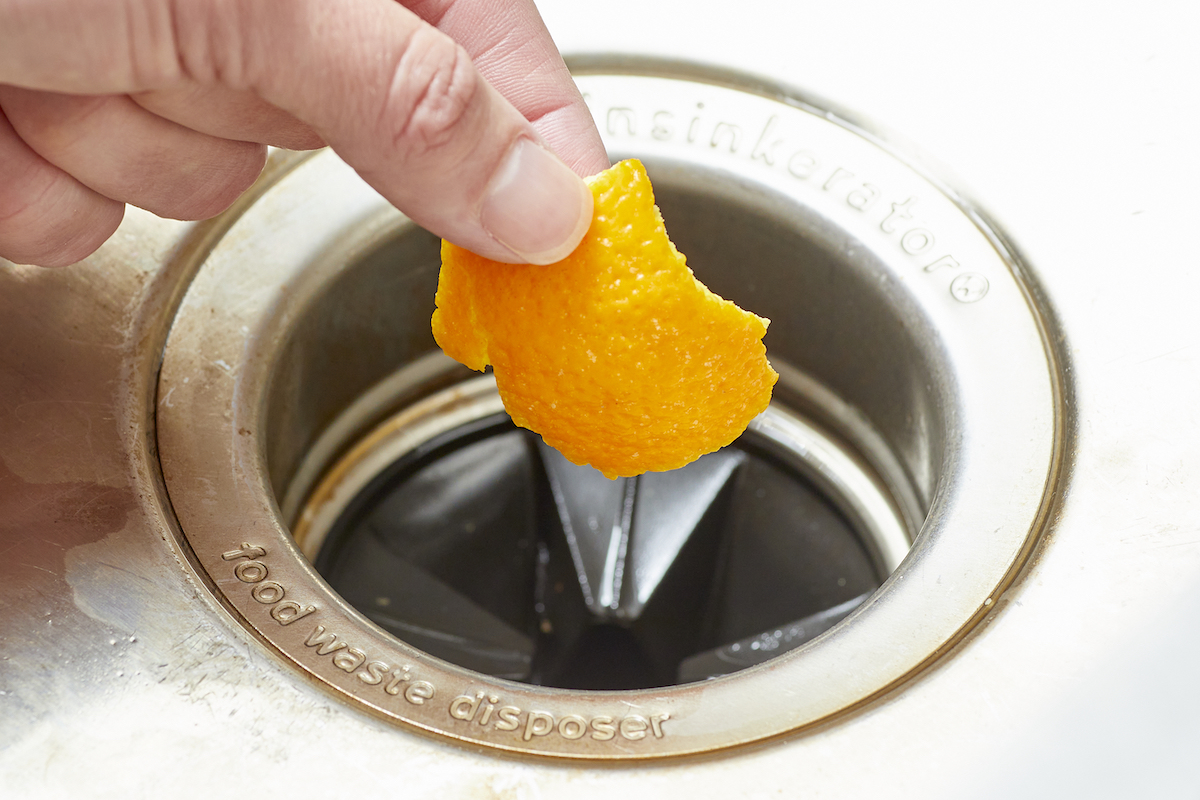

We may earn revenue from the products available on this page and participate in affiliate programs. Learn More ›
Consider the environment within the average in-sink garbage disposal: It’s cool, dark, and moist, and there’s a near constant influx of food that gets shredded and scattered about. No wonder it gets smelly from time to time! To clean a garbage disposal and eliminate the odor-causing bacteria, follow these instructions.
Before You Begin
Always to disconnect the power to a garbage disposal before examining or making any repairs to it. The easiest way to cut its power is to unplug it. Garbage disposal outlets are usually in the cabinet under the sink. If you can’t locate the outlet, cut the power to the disposal off at your house’s main electrical panel. To confirm that the power is off, try turning on the garbage disposal.
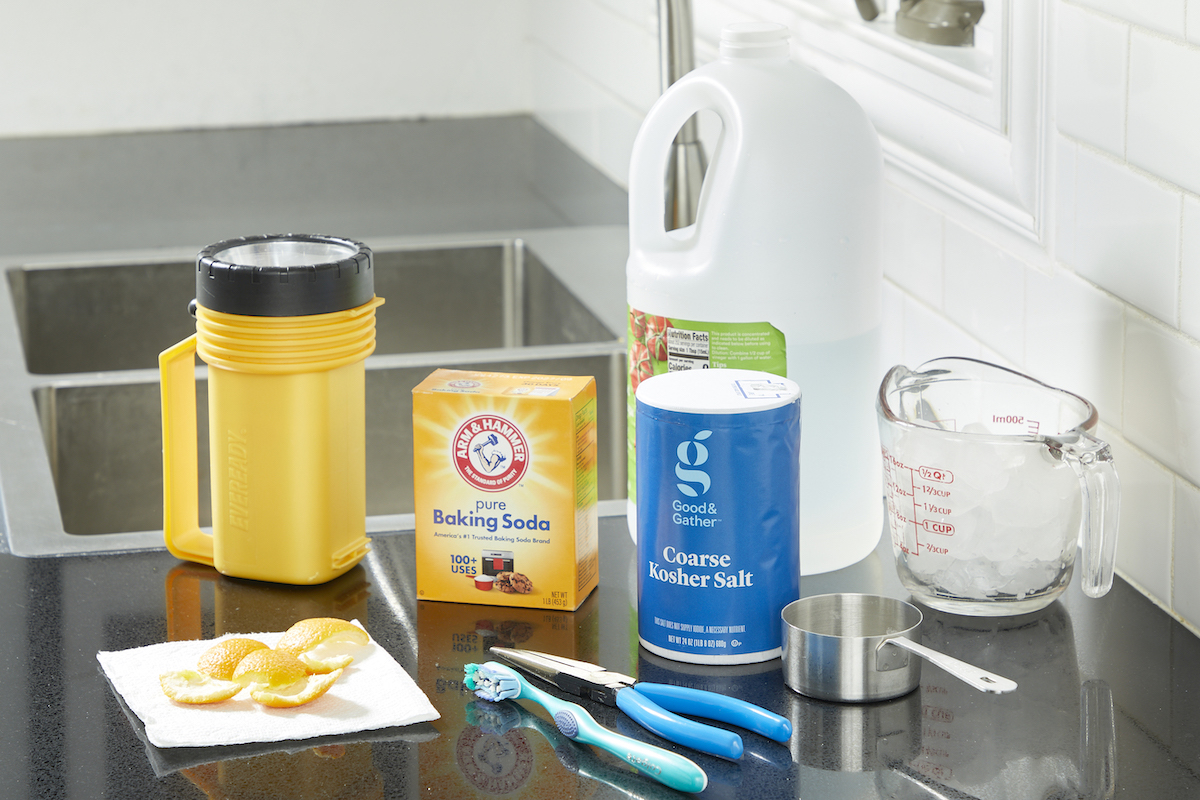
Tools & Materials
Bobvila.com may earn a commission from purchases made through these links.
The Safe Way to Clean a Garbage Disposal
Step 1: Remove any debris that might be lodged in the impellers.
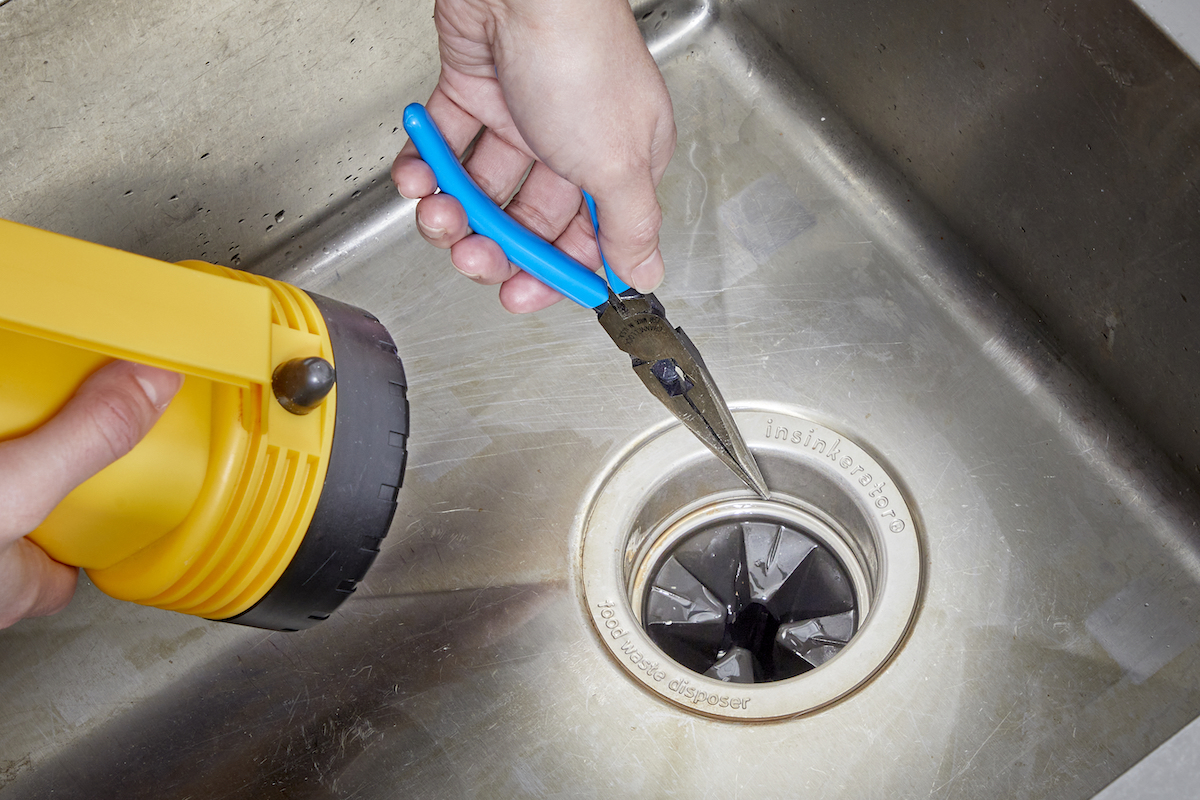
Next, point a flashlight down the drain to identify objects that may be lodged in, or wound around, the impellers that macerate the solids sent through the disposal. Look for such things as bottle caps, aluminum can pull-tabs, or vegetable fibers. If you find any, remove these items with needle-nose pliers or tongs. Never stick your hand into the garbage disposal chamber, even if the power is off: The machine’s blades are very sharp!
Step 2: Grind ice and rock salt in the disposal.
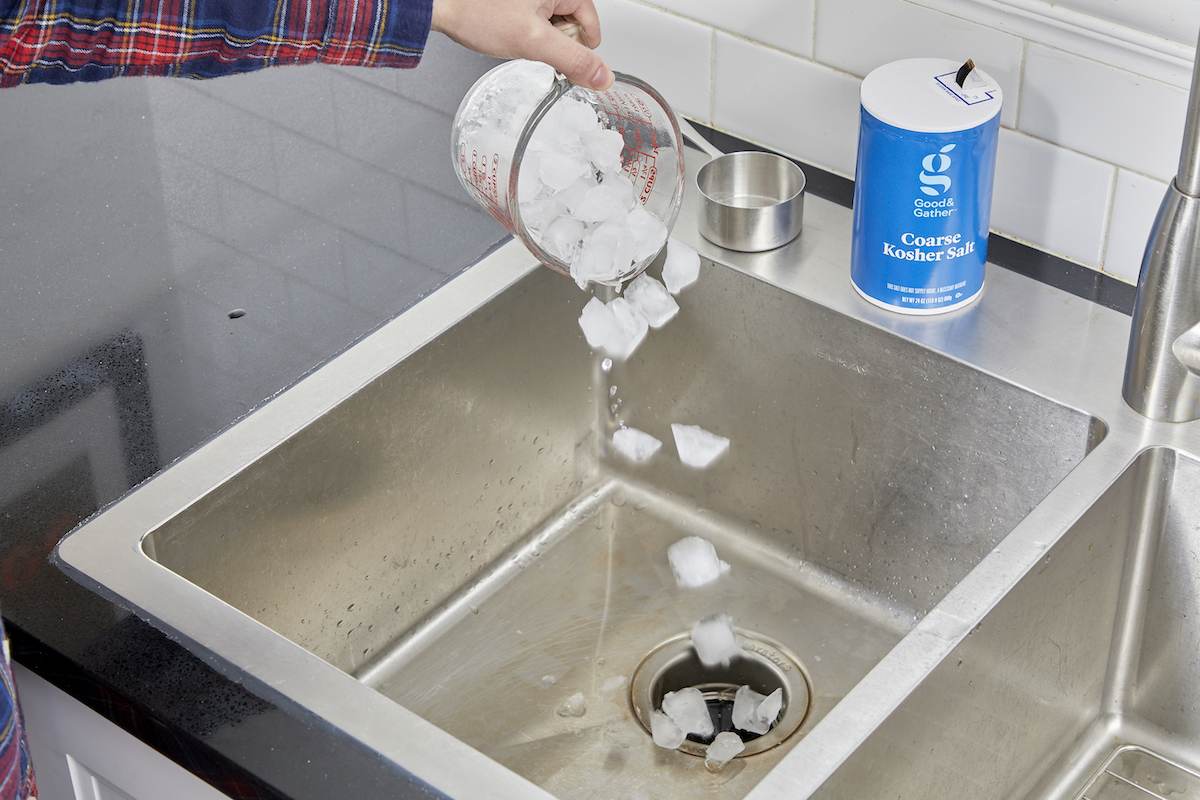
Drop about a dozen ice cubes into the garbage disposal, followed by 1/2 cup of rock salt. Restore power to the disposal, so that you can turn on the mechanism while running water down the drain. Keep it on for about a minute, until all the built-up grime and gunk has fallen away from the disposal blades. Check the drain with a flashlight again. If the blades are clean, go and shut the power back off.
Step 3: Pour baking soda and vinegar into the disposal.
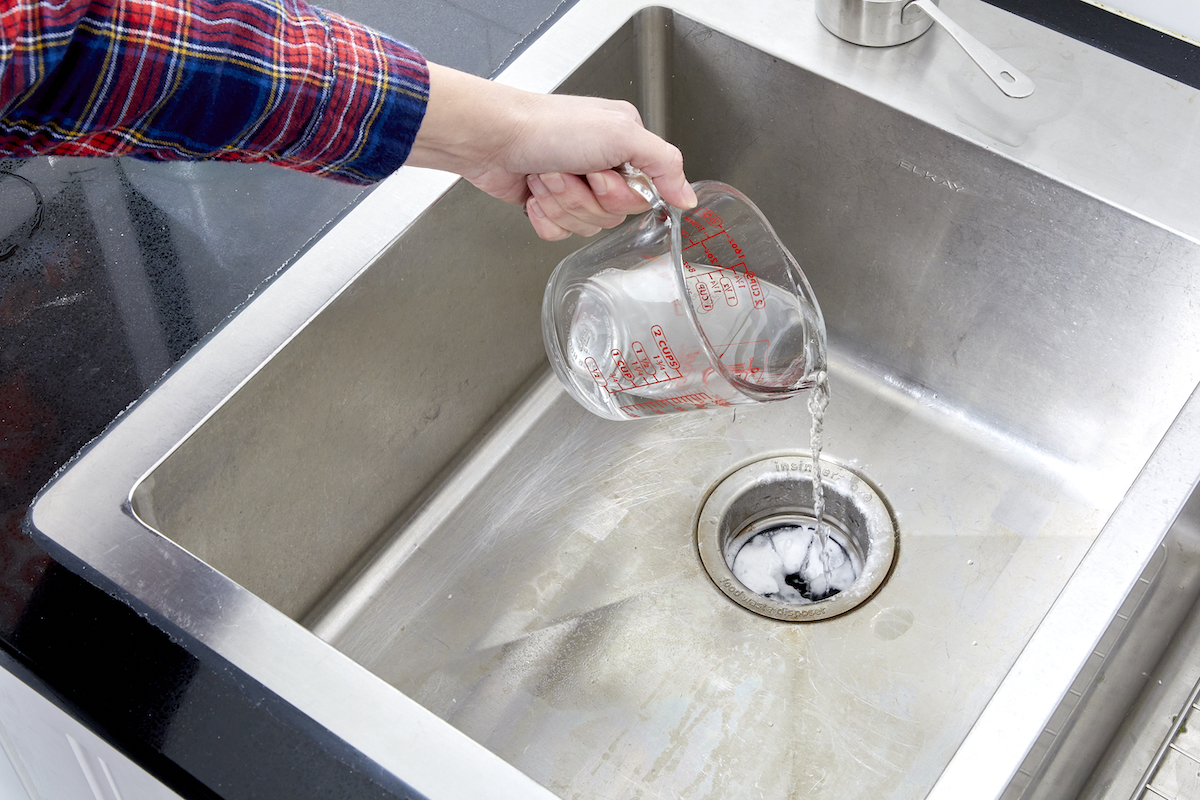
Pour 1/2 of baking soda and 1 cup of vinegar into the disposal. Let the combination fizz for about 15 minutes. The solution’s acidity kills bacteria, including salmonella and E. coli. Stick with the natural cleaners here; no toxic chemical should be used. Just as bacteria can come flying out of the disposal, compromising the sanitation of your kitchen sink, so too could a chemical product.

Tried-and-True Advice
“I clean my garbage disposal regularly by switching off the disposal unit and pouring in some baking soda and distilled vinegar. I let that mixture marinate for a bit, then I run hot water through the disposal, switch the unit on, and drop a few citrus peels into the grinder while keeping the water running. The bright, citrus scent from the peels keeps my kitchen smelling so fresh that I sometimes store up old citrus peels in a bag in my freezer just so I can use them for cleaning.”
—Lauren Landers, Contributing Writer
Step 4: Scrub rubber components with a baking soda and vinegar paste.
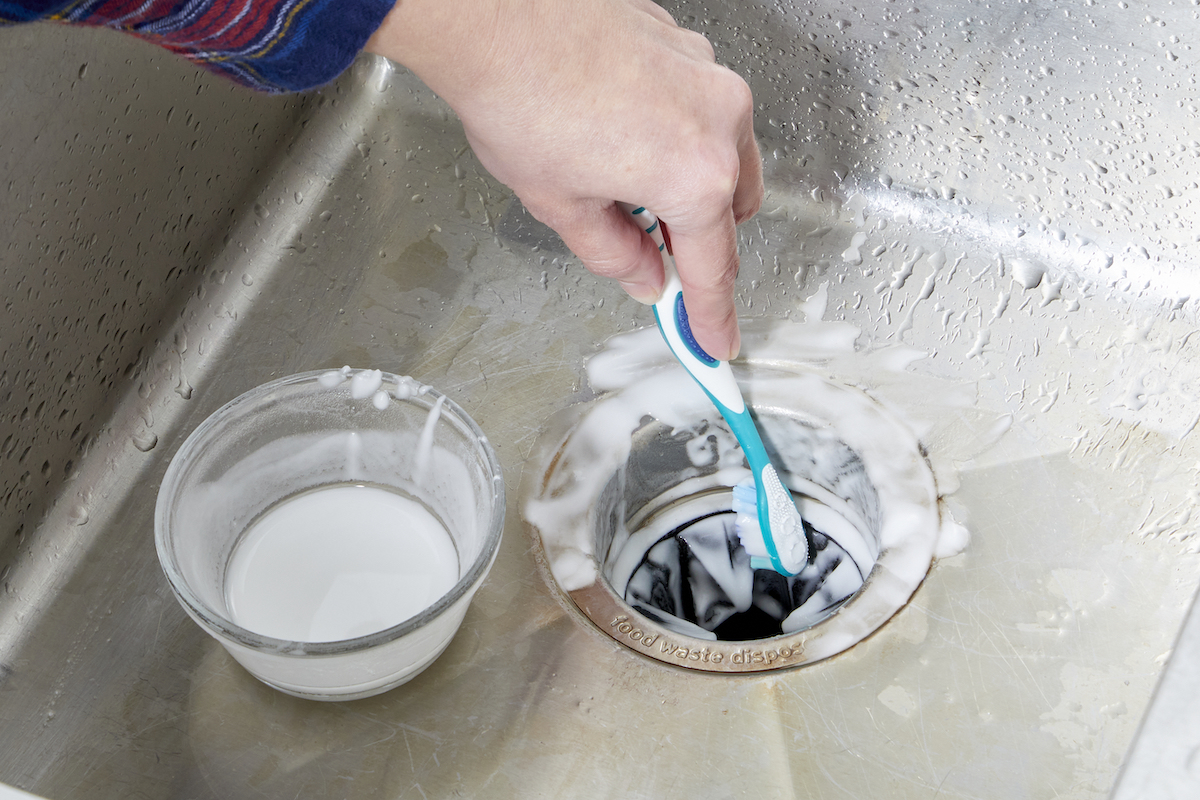
While the vinegar and baking soda are busy fizzing inside the disposal, combine the two ingredients again. This time, mix them in a small bowl to create a thick paste. Dip an old toothbrush in the paste, and use it to scrub down the top and bottom surfaces of the rubber flaps along the neck of the disposal. Those flaps are likely to be as bacteria-ridden as any other component. While you’re at it, think about giving a good scrub to the rubber parts on your sink stopper, too, if there are any.
Step 5: Flush the disposal with water.
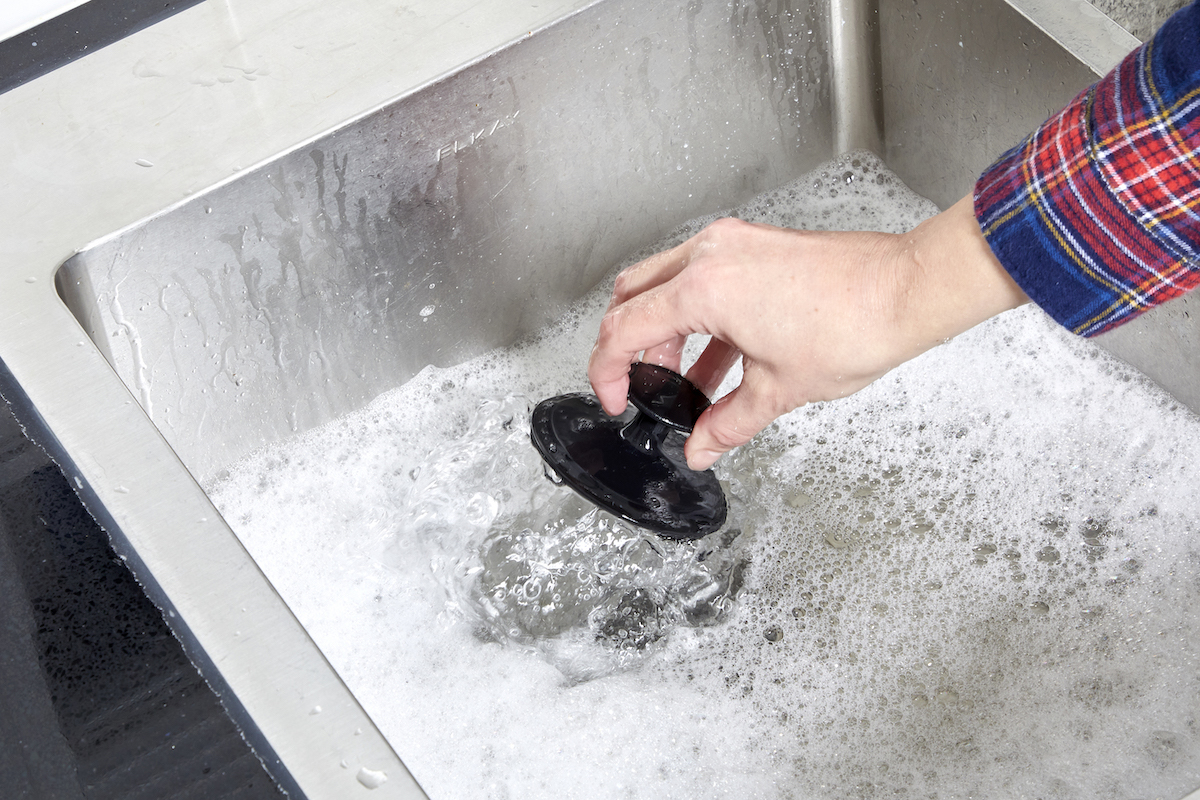
Now’s the time to engineer one final flush of the garbage disposal. First, plug the drain opening. Second, run the water in the sink until its basin is about three-quarters full. Add a teaspoon of dish soap, then finally remove the drain plug, letting the water drain out while the disposal runs.
How to Maintain a Fresh Garbage Disposal
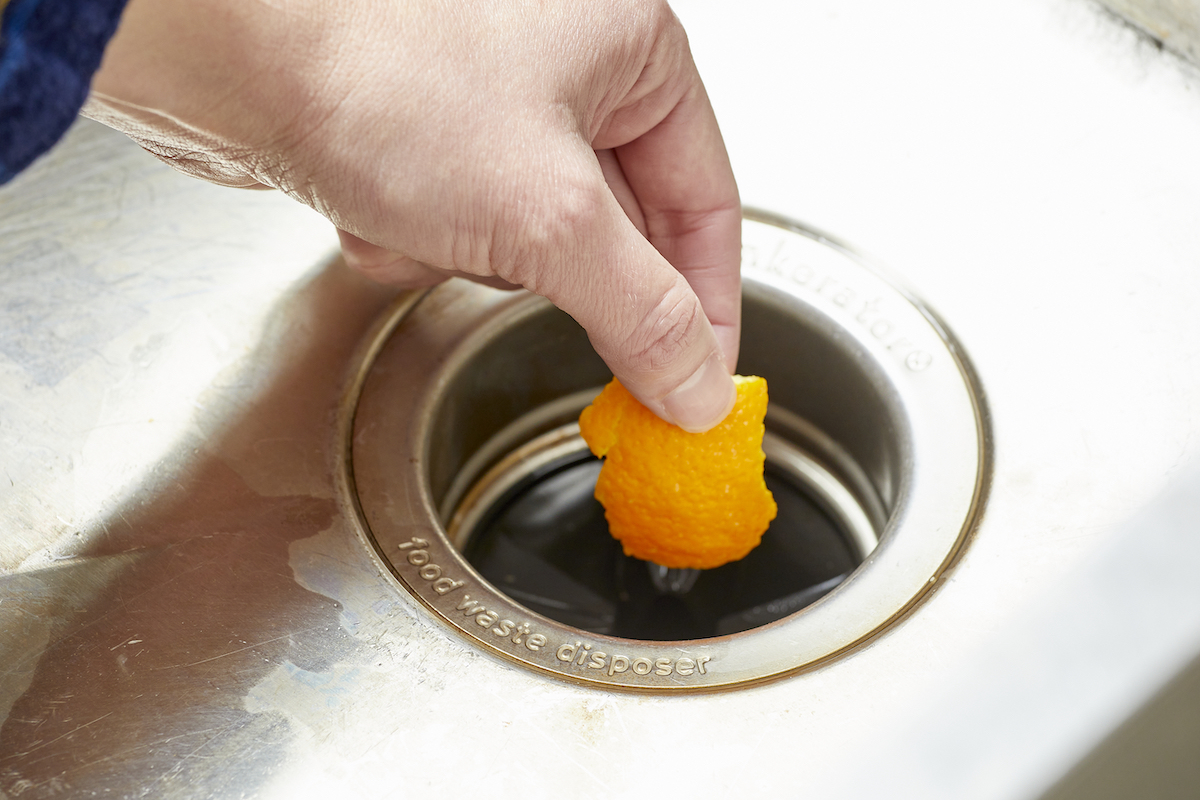
You can keep odors in your sink and garbage disposal to a minimum by grinding citrus peels in the disposal. Mark your calendar with a reminder to clean the garbage disposal every 2 weeks or so. For regular cleaning, any method works, be it ice and rock salt or vinegar and baking soda. Each takes only a few minutes, and if you stay on top things, you can avoid the more laborious and time-consuming process we’ve detailed here.
